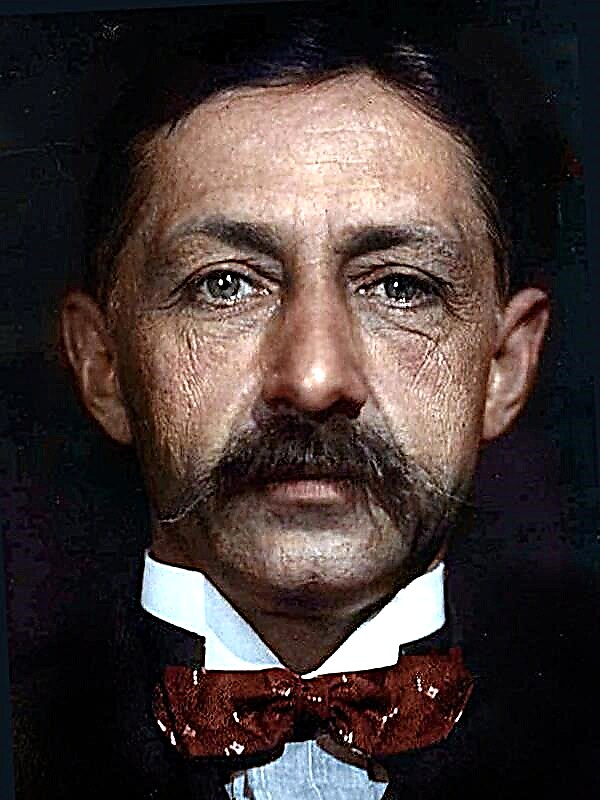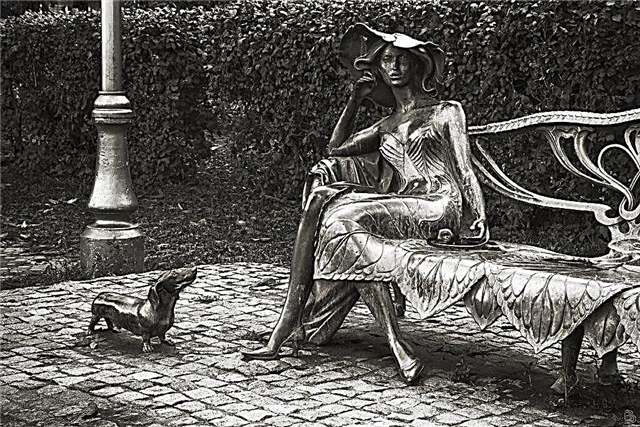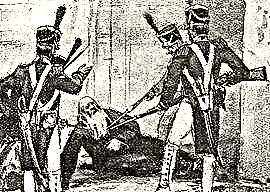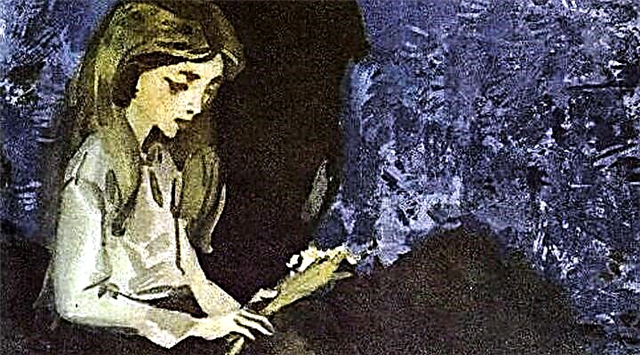Once upon a time there lived a middle adviser named Minamoto-no Tadayori, and he had many beautiful daughters whom he loved and cherished in luxurious chambers. And he had another daughter, unloved, he had visited her mother once, but she had died a long time ago. And his main wife had a cruel heart, she disliked her stepdaughter and settled her in a small closet - otikubo, hence the name of the girl - Otikubo, who always felt lonely and defenseless in her family. She had only one friend - the young Akogi's maid. Otikubo played beautifully on the zither and had a good command of the needle, and therefore her stepmother always forced her to sheathe the whole house, which was not within the strength of a fragile young lady. She was even deprived of the society of her beloved servant, but she managed to find a spouse - the swordsman Korenari. And that one had an acquaintance - the junior chief of the left guard Mitiyori. Having heard about Otikubo’s misfortunes, he set out to make acquaintance with her and began to send her gentle messages in verse, but she did not answer. And once, when the stepmother with her father and all the household went on holiday, and Otikubo and Akogi were left alone, the swordsman brought Mitiyori to the house, and he tried to gain her favor, but she, ashamed of a poor dress with holes, could only cry and with difficulty whispered a farewell poem:
You are full of sadness ...
In my mouth the answer froze.
And echoes sobs
Screaming rooster in the morning.
In the morning I will not soon have tears.
But her voice was so gentle that Mitiyori finally fell in love. It was morning and he had to leave. Otikubo wept alone in her miserable closet, and Akogi began to decorate her poor room with all she could: after all, the young lady did not have a screen, curtains, or beautiful dresses. But the maid smoked fragrant sticks, took the clothes from her aunt, got the curtain, and when Mitiyori left the house in the morning, there was a beautiful wash basin and tasty things for breakfast. But in the morning, Mitiyori left, and yet the third wedding night was coming, which should be furnished especially solemnly. A servant rushed to write letters to her aunt asking to bake rice balls, and she guessed what was going on and sent a whole basket of wedding balls and miniature cookies with fragrant herbs - everything was wrapped in snow-white paper!
The real "treat of the third night." But that night it was raining heavily, and Mitieri hesitated: to go or not to go, and then a message came from the young lady:
Ah, often in the old days
I dropped the dewdrops of tears
And death called to her in vain
But the rain is sad this night
He will wet his sleeves harder.
After reading it, Mitieri took off his rich dress, dressed in worse clothes, and with only one swordsman set off on foot under a huge umbrella. For a long time and with adventures they traveled in complete darkness. Otikubo, thinking she was already leaving so soon, sobbed into the pillows. Then Mitiyori appeared, but in what form! All wet, dirty. But, having seen the rice balls, which were always treated to the newlyweds in the old days, he was moved. In the morning, a noise was heard in the estate - these were the gentlemen and the servants. Otikubo and Akogi did not remember themselves in fright. The stepmother, of course, looked in to Otikubo and immediately realized that something had changed: the closet smelled nice, there was a curtain in front of the bed, and the girl was dressed up. Mitieri looked through the crack and saw a lady of a rather pleasant appearance, if not for her thick, frowning eyebrows. The stepmother looked at Otikubo’s beautiful mirror, inherited from her mother, and, seizing him, withdrew with the words: “And I will buy you another.” Mitieri thought: "How unusually sweet and kind Otikubo is." Returning home, he wrote her a gentle letter, and she answered with a wonderful poem, and the swordsman undertook to deliver it to the address, but accidentally dropped it in the chambers of his sister Otikubo. She with curiosity read the outpouring of love and recognized the graceful handwriting of an orphan. The stepmother immediately heard about the letter and was frightened: it was necessary to prevent the marriage of Otikubo, otherwise you would lose an excellent free seamstress. And even more she began to hate the poor young lady, to shower her with work, and Mitiyori, finding out how she treats Otikubo, became very angry: “How do you endure?” Otikubo answered with the words from the song that she was “a flower of a wild pear and that the mountain would not protect her from grief”. And a terrible rush began in the house, it was necessary to sew an elegant suit for the son-in-law as soon as possible, and all, and the stepmother and father, drove the daughter: sooner rather. And they scolded what the light stands for, and Mitiyori heard all this, lying behind the curtain, and Otikubo's heart was breaking with grief. She started sewing, and Mitieri began to help her pull the fabric, they exchanged gentle speeches. And the angry stepmother, as thick as a ball, with sparse hair similar to rat tails, overheard under the door and, when she saw a handsome young man in a white silk dress in the crack, and under the upper dress, in a bright scarlet bottom robe of glossy silk and a train from below the color of a tea rose, - it inflamed with terrible anger and conceived poor Otikubo to lime. She was scolded in front of her father and locked in a tight closet, left without food. And to crown it all, the evil stepmother decided to give the young lady to an elderly uncle, who is still eager for young girls. Mitieri languished in anguish, through Akogi they could secretly only exchange sad messages. Here is what Mitiyori wrote to her:
Until life goes out
The hope in me will not fade away.
We will meet again with you!
But you say: I will die!
Alas! Cruel word!
Night fell, and the ruthless stepmother brought uncle in the pantry, burning with love. Otikubo could only cry from such a love affliction, but Akogi advised her to say that she was seriously ill. Mitieri suffered and did not know what to do, the gate of the estate was constipated. The swordsman began to think about going to the monks. The next night, Akogi managed to wedge the closet door so that the crappy old man couldn’t get inside, and he beat-beat, but his legs froze on the bare floor, and besides, diarrhea grabbed him and he hastily left. The next morning I sent a letter:
People are laughing at me.
My name is "dried tree".
But you do not believe empty speeches.
Warm with spring, gentle warmth,
A beautiful color bloom again.
In the morning the whole family, with their father and stepmother at the head, with servants and household members, went on holiday to the Kamo shrines, and Mitieri did not wait a minute. He harnessed the crew, the windows in them were hung with simple curtains the color of fallen leaves and hastened off on the road, guarded by numerous servants. A swordsman rode ahead on a horse. Arriving at the stepmother’s house, Mitiyori rushed to the storeroom, the swordsman helped break the door open, Otikubo found herself in Mitiyori’s arms, Akogi grabbed her aunt’s things, a crest box, and the crew flew out of the gate on the wings of joy. Akogi did not want her stepmother to think that Otikubo was in Uncle's hands, and she left his love message on the table. Arriving at Mitiyori’s house, the lovers couldn’t talk, and laughed to tears over the unlucky old man, who had diarrhea at the crucial moment. Father with his stepmother, returning home and finding the pantry empty, came in terrible rage. Only the youngest son, Saburo, said that they had done wrong to Otikubo. No one knew where Otikubo disappeared.
The stepmother, planning to marry one daughter, sent the matchmaker to Mitiyori, and he, wanting revenge on the evil witch, decided to agree to look, and then impersonate another person to inflict a terrible insult on her. Mitiyori had a cousin, nicknamed the White Mate, whose fool was few, his face was horseish, of an incomprehensible whiteness, and his nose appeared in some surprising way. On the wedding day with his stepmother’s daughter, although he was sorry for the innocent girl, hatred of the stepmother prevailed, he instead sent his brother, whose ugliness and stupidity in an elegant outfit did not immediately strike the eye, and the glory of Mitieri as brilliant secular gentleman helped the cause. But very soon everything became clear, and the stepmother seemed to lose her mind from grief: the son-in-law was very foolish, he was feeble, and his nose looked up into the sky with two huge holes.
In Mitiyori’s house, life flowed happier and more carefree, Akogi became a housekeeper, and her thin figure scurried around the house, she even received a new name - Emon. Mitieri enjoyed the favor of the emperor, he gave him dresses of purple color, fanned with aromas, from his shoulder. And Otikubo could show her art, she sewed formal dresses for the mother of Mitiyori, an elegant lady, and for his sister, the wife of the emperor. Everyone was delighted with the cut, the selection of colors. Mitiyori’s mother invited Otikubo — and she was already carrying a child in her womb — to the gallery, covered with cypress bark, to admire the feast of the Kamo shrine, and Otikubo, appearing, overshadowed everyone with her beauty, a childlike innocent look, and a wonderful outfit of purple silk woven with patterns , and on top of it - another, colored juice of red and blue flowers.
Finally, Otikubo resolved the burden of her first-born son, and a year later brought another son. Mitiyori’s father and he themselves received high posts at the court and believed that Otikubo brought them happiness. Father Otikubo grew old, lost his influence at the court, the sons-in-law, whom he was proud of, left him, and the White-faced Skate only dishonored him. He thought that Otikubo disappeared or died. Father and stepmother decided to change the house, which brought them misfortune, and restored and brought shine to the old house, which once belonged to the late mother Otikubo. The house was cleaned more beautifully and were about to move, but then Mitiyori found out about it, and it became clear to him that this house belonged to Otikubo, she and her letters were all right. He decided not to let the evil stepmother and his daughters into the house and he solemnly moved. Mitieri was rejoicing, but everything in the stepmother’s house became disheartened, Akogi was also happy, only Otikubo wept bitterly and pitied the old man, begging him to return the house. Then Mitiyori took pity on him and the innocent sisters and the youngest Saburo and invited them to his place. The old man was incredibly happy to see his daughter, and even more so to the happy change in her fate, he recalled with horror his former cruelty to his daughter and was surprised at his blindness. The old man was awarded wonderful gifts - real treasures - and they began to take care of him so much that words could not be described. They arranged a reading of the Lotus sutra in his honor, invited many eminent guests, eight days the monks read the scrolls, gatherings became more crowded day by day, the emperor’s wife herself sent precious beads to the Buddha’s altar. The screens in the banquet hall were decorated with twelve wonderful paintings by the number of moons per year. All the sons of the old man were awarded ranks and titles, and their daughters were successfully married to noble and worthy people, so that the evil stepmother herself softened, especially since she was given a spacious house and a great many outfits and all kinds of utensils. In general, everything turned out well and Akogi, they say, lived to be two hundred years old.












